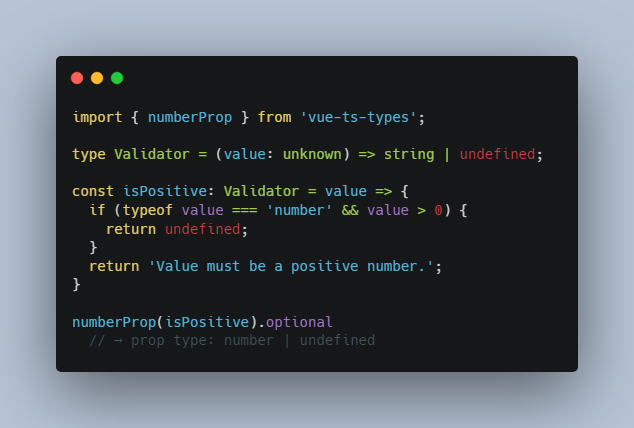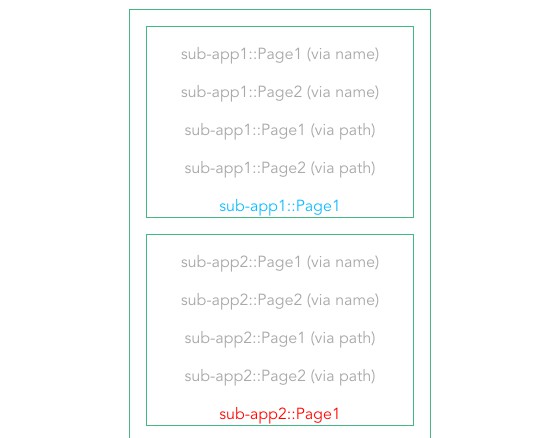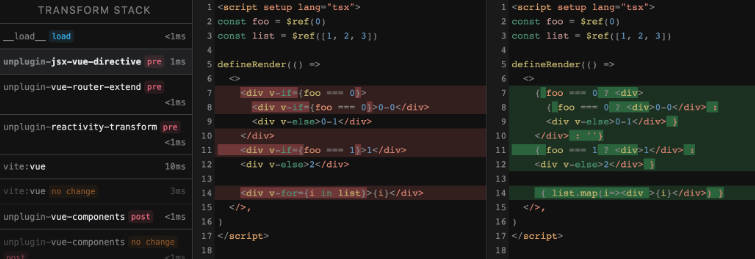vue-ts-types
Lightweight TypeScript-first Vue prop type definitions
Example
import Vue from 'vue';
import { booleanProp, stringProp, arrayProp, functionProp, oneOfProp } from 'vue-ts-types';
Vue.component('MyComponent', {
props: {
disabled: booleanProp().withDefault(false),
title: stringProp().optional,
items: arrayProp<string>().required,
callback: functionProp<() => void>().optional,
color: oneOfProp(['red', 'green', 'blue'] as const).withDefault('red'),
},
mounted() {
this.disabled // type: boolean
this.title // type: string | undefined
this.items // type: string[]
this.callback // type: (() => void) | undefined
this.color // type: 'red' | 'green' | 'blue'
},
});
Installation
npm install vue-ts-types
Usage
Each of the prop functions returns an object with the following properties:
.optional: Use this to mark the prop as not required with a default value ofundefined. Also includesundefinedin the resulting prop type..required: Use this to mark the prop as required without a default value..withDefault(value): Use this to set a default value for the prop. Note that the value has to fit the prop type. For non-primitive types, the value has to be a function that returns the default value.
Custom validator functions
Custom validator functions can be passed to any of the prop types. They are called with the value of the prop (type unknown) and should return a validation error message, or undefined if the value is valid. Validator functions do not influence type inference.
import { numberProp } from 'vue-ts-types';
type Validator = (value: unknown) => string | undefined;
const isPositive: Validator = value => {
if (typeof value === 'number' && value > 0) {
return undefined;
}
return 'Value must be a positive number.';
}
numberProp(isPositive).optional
// → prop type: number | undefined
stringProp(validator?: Validator)
Allows any string. No further runtime validation is performed by default.
stringProp().optional
// → prop type: string | undefined
stringProp().required
// → prop type: string
stringProp().withDefault('foo')
// → prop type: string
booleanProp(validator?: Validator)
Allows any boolean (validated at runtime and compile time).
booleanProp().optional
// → prop type: boolean | undefined
booleanProp().required
// → prop type: boolean
booleanProp().withDefault(false)
// → prop type: boolean
numberProp(validator?: Validator)
Allows any number (validated at runtime and compile time).
numberProp().optional
// → prop type: number | undefined
numberProp().required
// → prop type: number
numberProp().withDefault(3.1415)
// → prop type: number
integerProp(validator?: Validator)
Allows any integer (validated at runtime).
integerProp().optional
// → prop type: number | undefined
integerProp().required
// → prop type: number
integerProp().withDefault(42)
// → prop type: number
symbolProp(validator?: Validator)
Allows any symbol (validated at runtime and compile time).
symbolProp().optional
// → prop type: symbol | undefined
symbolProp().required
// → prop type: symbol
symbolProp().withDefault(Symbol('foo'))
// → prop type: symbol
vueComponentProp(validator?: Validator)
Allows any Vue component instance, name or options object. No built-in runtime validation is performed by default.
vueComponentProp().optional
// → prop type: ComponentOptions<Vue> | VueConstructor<Vue> | string | undefined
vueComponentProp().required
// → prop type: ComponentOptions<Vue> | VueConstructor<Vue> | string
vueComponentProp().withDefault('close-icon')
// → prop type: ComponentOptions<Vue> | VueConstructor<Vue> | string
anyProp<T>(validator?: Validator)
Allows any type. No built-in runtime validation is performed by default.
Type parameter T can be used to restrict the type at compile time.
anyProp().optional
// → prop type: any
anyProp().required
// → prop type: any
anyProp().withDefault('foo')
// → prop type: any
anyProp<string>().optional
// → prop type: string | undefined
anyProp<string>().required
// → prop type: string
anyProp<string>().withDefault('foo')
// → prop type: string
arrayProp<T>(validator?: Validator)
Allows any array. No further runtime validation is performed by default.
Type parameter T can be used to restrict the type of the array items at compile time.
arrayProp().optional
// → prop type: unknown[] | undefined
arrayProp().required
// → prop type: unknown[]
arrayProp().withDefault(() => [])
// → prop type: unknown[]
arrayProp<string>().optional
// → prop type: string[] | undefined
arrayProp<string>().required
// → prop type: string[]
arrayProp<string>().withDefault(() => ['foo', 'bar'])
// → prop type: string[]
objectProp<T>(validator?: Validator)
Allows any object. No further runtime validation is performed by default.
Type parameter T can be used to restrict the type at compile time.
objectProp().optional
// → prop type: object | undefined
objectProp().required
// → prop type: object
objectProp().withDefault(() => ({}))
// → prop type: object
interface User {
name: string;
}
objectProp<User>().optional
// → prop type: User | undefined
objectProp<User>().required
// → prop type: User
objectProp<User>().withDefault(() => ({ name: 'John' }))
// → prop type: User
functionProp<T>(validator?: Validator)
Allows any function. No further runtime validation is performed by default.
Type parameter T can be used to restrict the type to a specific function signature at compile time.
Note: There is no .withDefault() function for this prop type.
functionProp().optional
// → prop type: Function | undefined
functionProp().required
// → prop type: Function
type MyFunc = (a: number, b: string) => boolean;
functionProp<MyFunc>().optional
// → prop type: MyFunc | undefined
functionProp<MyFunc>().required
// → prop type: MyFunc
oneOfProp<T>(allowedValues: readonly any[], validator?: Validator)
Allows any of the specified allowed values (validated at runtime and compile time).
Type parameter T can be used to adjust the inferred type at compile time, this is usually not necessary.
Note: Proper type checking is only possible if the allowed values are readonly, usually through as const.
oneOfProp(['foo', 'bar'] as const).optional
// → prop type: 'foo' | 'bar' | undefined
oneOfProp(['foo', 'bar'] as const).required
// → prop type: 'foo' | 'bar'
oneOfProp(['foo', 'bar'] as const).withDefault('foo')
// → prop type: 'foo' | 'bar'
oneOfObjectKeysProp<T>(object: object, validator?: Validator)
Allows any of the keys of the specified object (validated at runtime and compile time).
Type parameter T can be used to adjust the inferred type at compile time, this is usually not necessary.
oneOfObjectKeysProp({ foo: 1, bar: 2 }).optional
// → prop type: 'foo' | 'bar' | undefined
oneOfObjectKeysProp({ foo: 1, bar: 2 }).required
// → prop type: 'foo' | 'bar'
oneOfObjectKeysProp({ foo: 1, bar: 2 }).withDefault('foo')
// → prop type: 'foo' | 'bar'
oneOfTypesProp<T>(type: PropType<T>, validator?: Validator)
Allows any of the passed constructor types (validated at runtime).
Type parameter T has to be used to adjust the type at compile time.
oneOfTypesProp<number | string>([Number, String]).optional
// → prop type: string | number | undefined
oneOfTypesProp<number | string>([Number, String]).required
// → prop type: string | number
oneOfTypesProp<number | string>([Number, String]).withDefault(42)
// → prop type: string | number
instanceOfProp()
Allows instances of the given constructor (validated at runtime and compile time).
Type parameter T can be used to adjust the inferred type at compile time.
instanceOfProp(Date).optional
// → prop type: Date | undefined
instanceOfProp(Date).required
// → prop type: Date
instanceOfProp(Date).withDefault(() => new Date())
// → prop type: Date
Contributing
Please see CONTRIBUTING.md.
Similar packages
License
Unless otherwise noted, all source code is licensed under the MIT License. Copyright (c) 2022 Flo Edelmann







